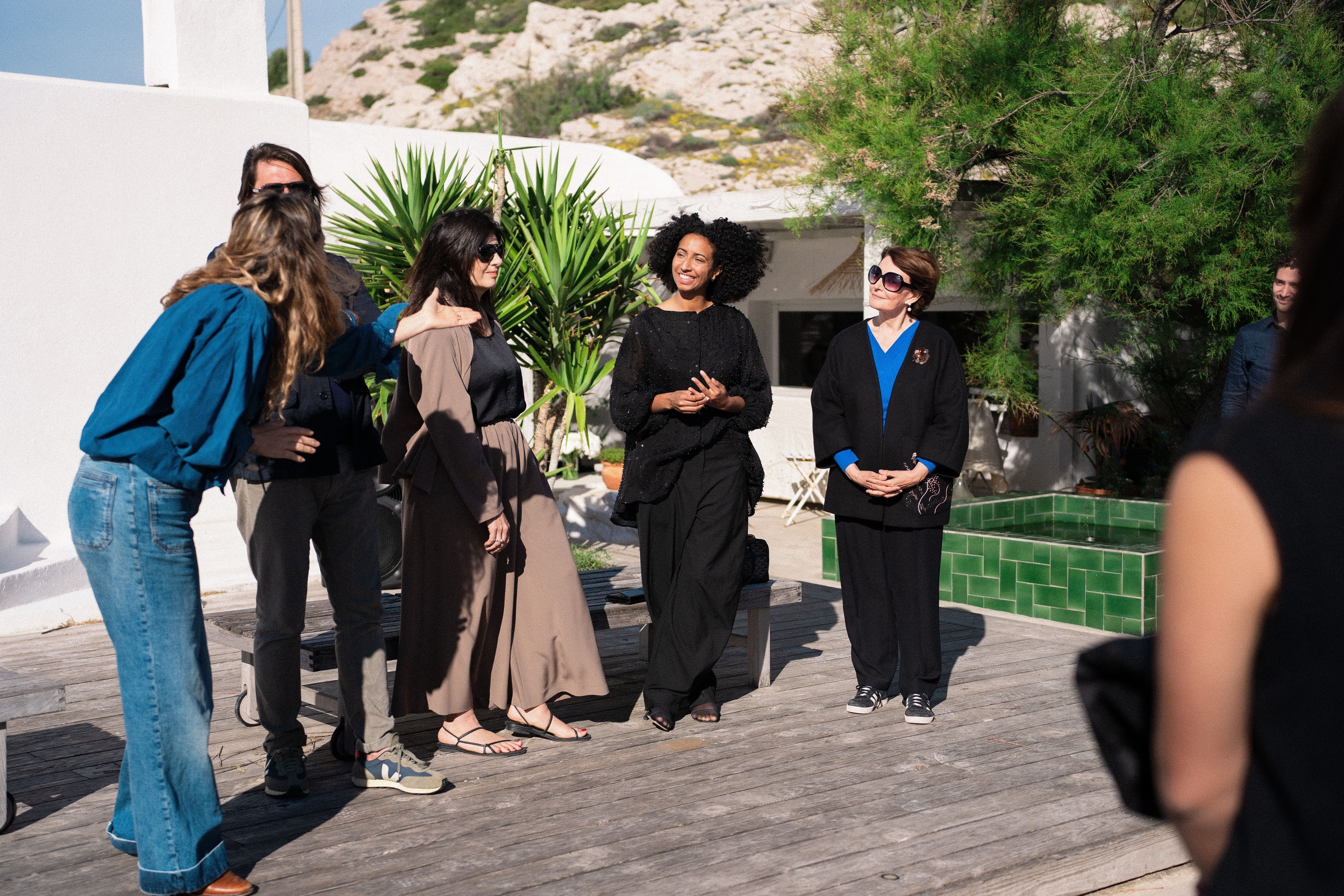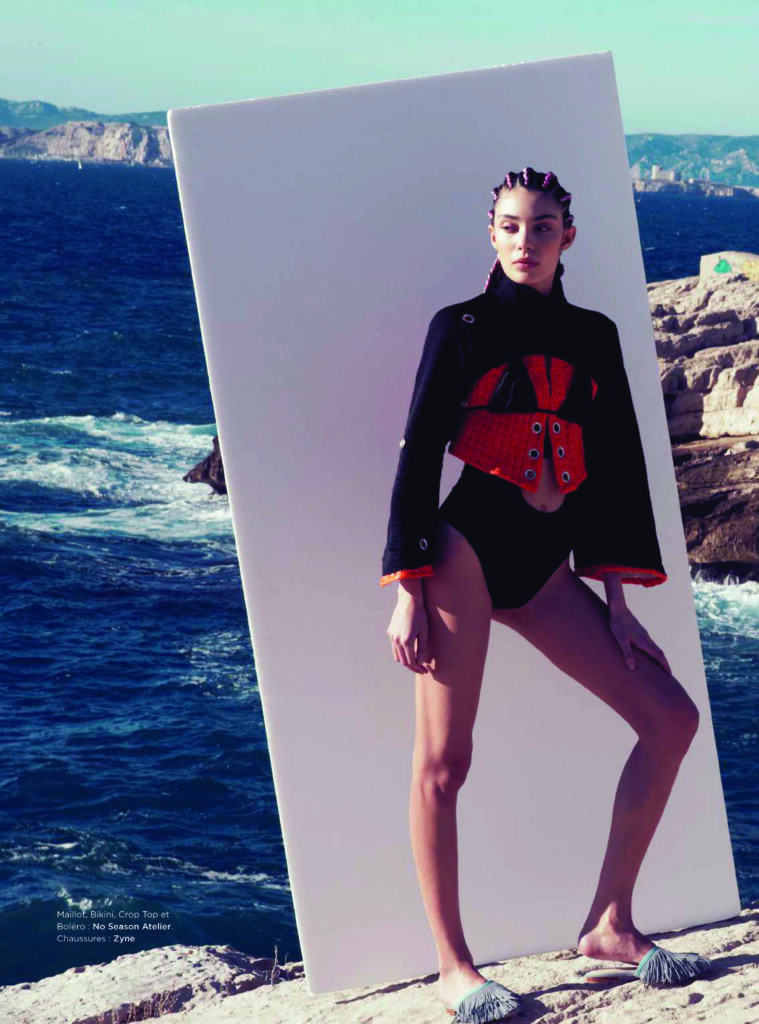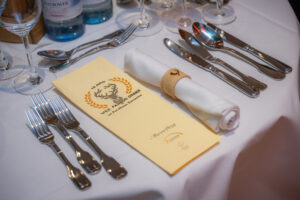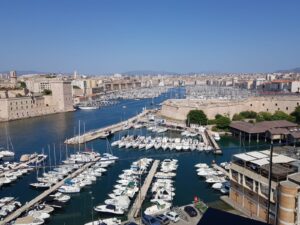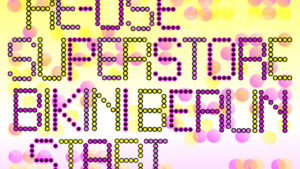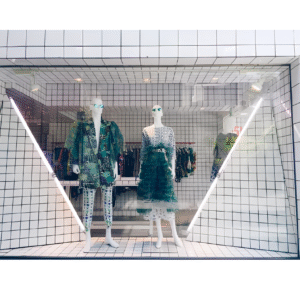Introduction
It took me some time to finally bring this interview online—work and the pace of life kept pushing it aside. But the launch of a new call for projects offered the perfect spark to return to it and share it at last. The timing couldn’t be better: these awards are a powerful reminder of Maison Mode Méditerranée’s unwavering commitment to the sectors that shape the cultural influence of the Mediterranean basin and Africa.
More than prizes, they embody a vision. They drive cooperation across the Mediterranean and Africa, fueling knowledge, research, creativity, and craftsmanship. They highlight eco-responsibility, sustainability, and transformation in the age of new technologies. Each award combines funding, mentorship, and skills sponsorship over two years, supporting the growth of emerging brands as well as the research of doctoral students, historians, journalists, and fashion scholars. MMM also amplifies media visibility and engages in cultural mediation around winning projects, ensuring their impact extends far beyond the fashion world.
Laureates benefit from the guidance of leading figures drawn from MMM’s strategic colleges, jury, partners, and Board of Directors—a unique network spanning creation, production, communication, image, and intercultural dialogue.
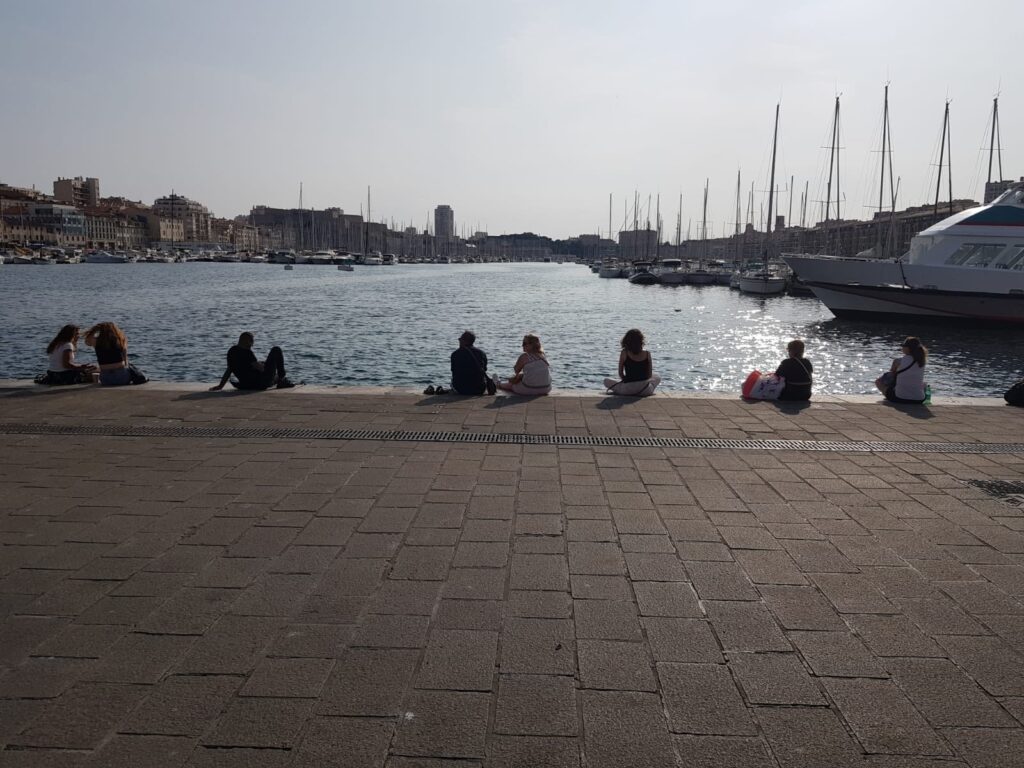
Maryline Bellieud-Vigouroux: A Heart at Work
by Michel Bourgeois
This interview with Maryline Bellieud Vigouroux takes us into the story and ambitions of a woman who succeeded in embedding fashion within the cultural fabric of Marseille and, beyond that, throughout the Mediterranean basin. Founder of the Maison Mode Méditerranée Endowment Fund (MMM), she has dedicated more than three decades to nurturing new talent and advancing a vision of fashion that is inclusive and open to the world.
Supporting Designers: The Example of Tata Christiane
Among the designers supported by MMM, Tata Christiane—awardee for the 2020–2021 period—perfectly embodies this mission through a unique and engaged aesthetic. This dialogue sheds light on the values and strategy of Maryline Bellieud Vigouroux, whose career has been guided by a quest for transmission, innovation, and equality in the fashion world, and who continues to inspire both the Mediterranean and international scenes today.
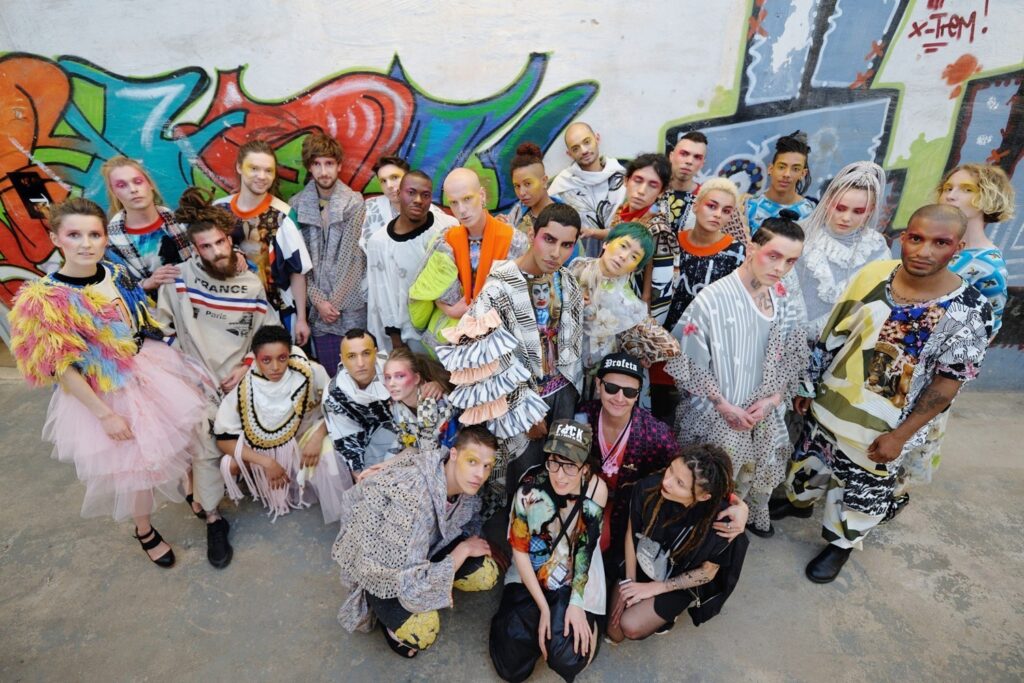
An Interview Marked by Transmission
For this conversation with Maryline Bellieud Vigouroux, who better than Michel Bourgeois—my father, a man of commitment and a passionate lover of culture—to explore the values and ambitions of this major figure of Mediterranean fashion? With his rich background, spanning his career at SNCF, his love of the arts, and his many humanitarian and civic endeavors, Michel Bourgeois embodies a perspective imbued with curiosity and benevolence. This exchange, conducted by a 73-year-old man who remains deeply engaged and committed to transmission, promises to shed light with depth on the work of Maryline Bellieud Vigouroux, placing it within a perspective of humanism and intergenerational sharing.
Maryline Bellieud-Vigouroux: A Heart at Work
by Michel Bourgeois
(Text inspired by the words gathered during the telephone interview that Maryline kindly granted me on Friday, October 17, 2024, and from her invaluable notes received thereafter)
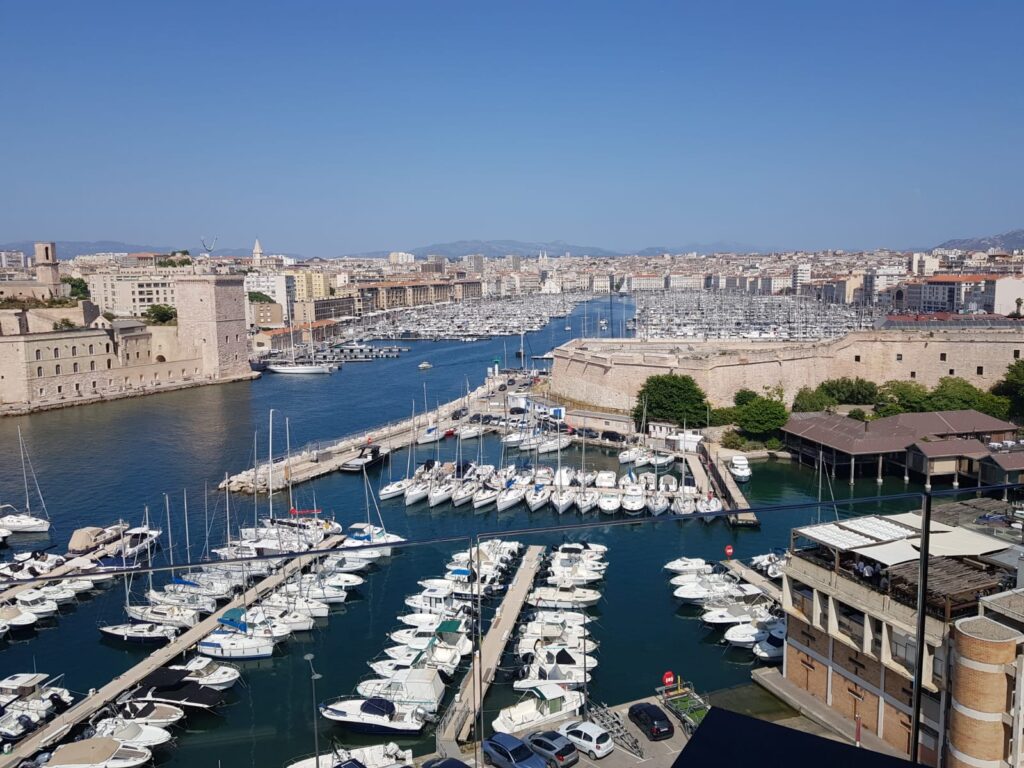
A Glorious History: The Motto of Marseille
The motto of Marseille is: Actibus Immensis Urbs Fulget Massiliensis—“Marseille shines through her glorious deeds.” This motto has accompanied our city since its founding more than 2,600 years ago. A foundation already shrouded in glory and the spirit of legend through the famous couple Gyptis and Protis (the Segobrigian and the Phocean).
Filmmaker John Ford once said, “When the legend becomes fact, print the legend.” Marseille has never ceased to write its own. Throughout its history, glory has never been absent—in fields as diverse as History (with the peak being La Marseillaise, which became the French national anthem thanks to Marseillais who “went up” to Paris to support the French Revolution), its openness to the world through a millennial Port, Astronomy, Commerce, the Arts, and Sport.
What remained was for the Arts of Fashion to be integrated into this constellation. This is the mission that Maryline Bellieud-Vigouroux set for herself more than thirty-five years ago.
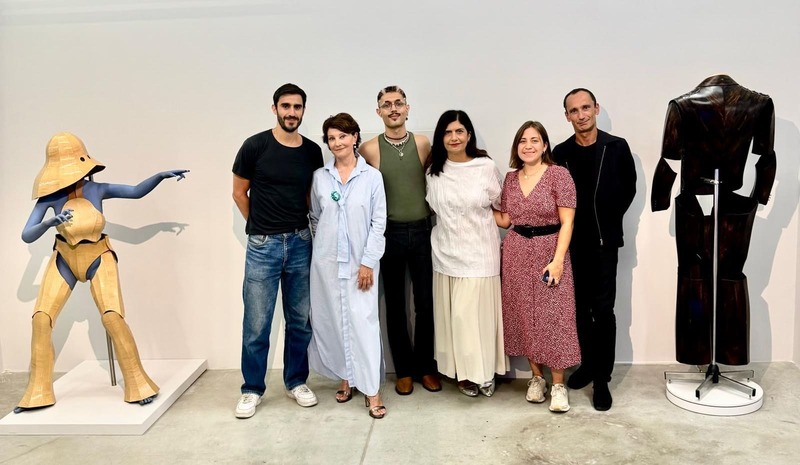
A Name and a Vision
Vigouroux—a strong name, familiar to the people of Marseille.
Robert, first of all, achieved a grand slam in the 1989 Municipal Elections. This unprecedented victory renewed his mandate as mayor for six years (until 1995) after the three years spent succeeding Gaston Defferre in 1986 at the head of France’s second-largest city.
His wife, Maryline, as we have said, would go on to inscribe the Phocean City into the one cultural, artistic, and universal perspective it still lacked: Fashion, or the Art of Dressing.
A predisposition to recognition through work, to commitment, and to cosmopolitan universalism.
When asked the simple question of defining her origins, it is indeed through this triptych that Maryline (she requests that her interlocutors use her first name, as a challenge to time) lays the foundation of her personality.
Italian on her mother’s side, more precisely Neapolitan, and rooted in Aveyron on her father’s side. In both families of modest background, the culture of integration and social advancement through work prevails. Carpentry in Campania, in Rouergue, and drapery gave strong signals about the nobility of craftsmanship—echoes of her future life that Maryline would already perceive at the age of five. Yet another signal, decisive for the future, was given to her by an Aveyronnais grandfather, deported to forced labor camps for having helped Jewish families in a France largely disfigured by Collaboration.
What other city than Marseille could better welcome a spirit so deeply shaped by its roots, its story, and by History itself?
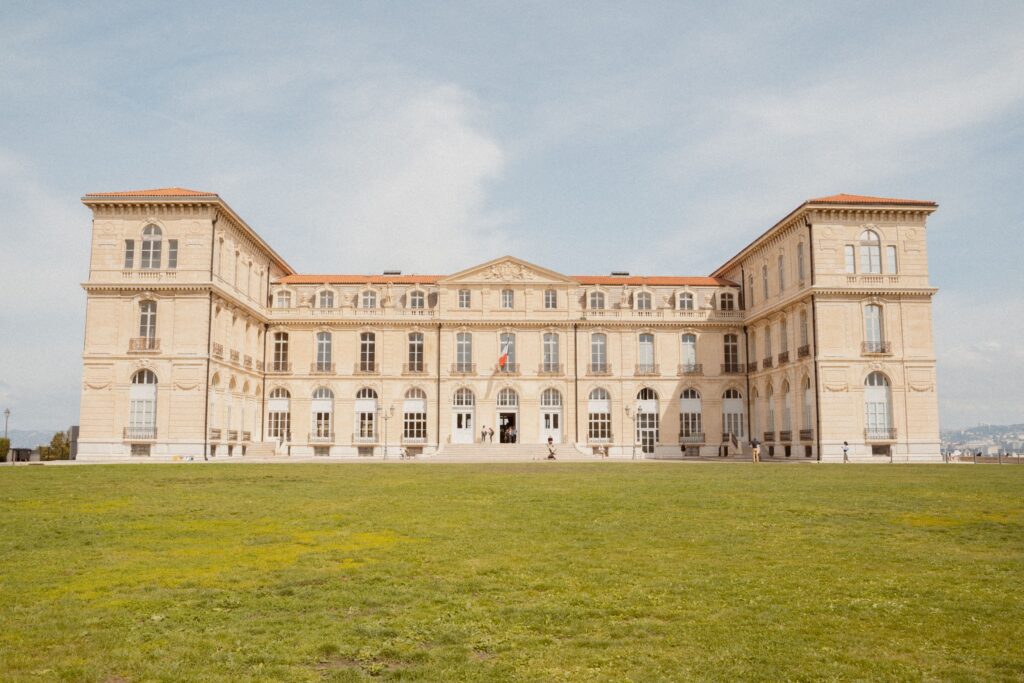
Concordance of Times
1986: Upon the death of Gaston Defferre, Robert Vigouroux is elected Mayor of Marseille. Beyond the political world, his global renown stems from his career as a neurosurgeon, and his local recognition from various commitments to the most disadvantaged.
Maryline, mother of Sophie (10 years old) and Aurélia (6 years old), reflects on the “status of the Mayor’s wife.” The conclusion that quickly becomes clear to her is to optimize this status rather than merely manage it (in the best case) or endure it (in the worst).
Her sensitivity naturally turns toward the city’s main points of attraction, the city where her husband has become Mayor. Multicultural through its mix of communities—each one brimming with creativity (Italian, Jewish, Armenian, Maghrebi, African…)—the City of Marseille offers a constant effervescence meant to be accessible to all, far from the elitism upheld by European capitals, including Paris. Certain places in Marseille particularly embody this vibrant originality: the Cours Julien is a striking example. Names of fashion designers emerge and begin to flourish; Zaza of Marseille, for instance, provides not just a note but the thread (and needle).
Fashion imposes itself upon Maryline as a true driver of the cultural decentralization envisioned by her husband’s predecessor and now supported by him as he takes office. Seasonal cycles, promotion of places (not only Paris or Lyon), regional recognition followed by international acclaim—the roadmap is beginning to take shape. The adventure can now begin. But if there is one lesson Marseille imparts, it is that no journey can be undertaken without a solid crew. Maryline would make sure to build one.
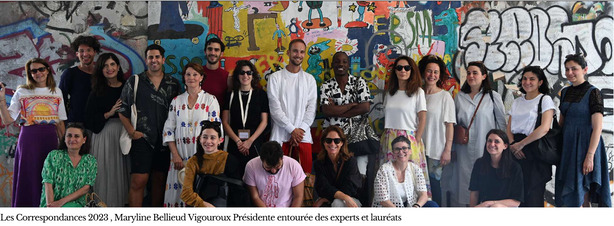
Essential Partners
Over the years, names have followed one another in their various and respective roles.
1987: Jacques Mouclier (1924–2015), President of the Chambre Syndicale de la Haute Couture, provided essential support—the guarantee of references and of mutual openness to foreign countries—which would form the basis for the definition, focused on the contemporary, of the missions of the Maison Mode Méditerranée and the Fashion Museum.
1988: Azzedine Alaïa (1935–2017), the first president of Maison Mode Méditerranée, inaugurated his term with a donation of 80 models from his collections and with his commitment through a Chanel exhibition at Borély, which brought together the great figures of French fashion (Saint Laurent, Pierre Bergé, K. Lagerfeld…). The event in a way marked the birth certificate of the Maison Mode Méditerranée association, founder of the Fashion Museum.
1988: Maison Chanel, a historical partner and patron since the opening of the Fashion Museum, consolidated its support by co-organizing the first exhibition in France dedicated to Gabrielle, “Chanel Marseille Past-Present.” Eighty models were displayed, including 24 exceptional pieces belonging to the Lilou Marquand ex-Grumbach collection (1931/–), acquired thanks to the patronage and support of Marseille’s economic world. These pieces illustrate, beginning with the use of jersey, the evolution of women’s clothing toward the freedom of the body.
Françoise Montenay, President of SAS Chanel, who presided over Chanel Fashion for 15 years, was a lifelong friend and tireless mentor to Maryline.
For the past 15 years, Bruno Pavlovski, current President of Chanel Fashion, has skillfully developed and preserved all the métiers d’art (38 in total), 17 of which are gathered within Le 19M in Aubervilliers—a hyper-creative hub designed by an architect well known to the people of Marseille: Rudi Ricciotti (Mucem).
In May 2024, Maryline and Bruno Pavlovski jointly received from Benoît Payan, the current Mayor of Marseille, the City’s Medal of Honor, recognizing their commitment to placing Marseille on the international map of fashion cities—not as a fad, but as a lasting presence.
Through her many partnerships, which others would later enrich, there emerges a will, a dynamic, and of course increasingly significant achievements. In a word: a strategy.
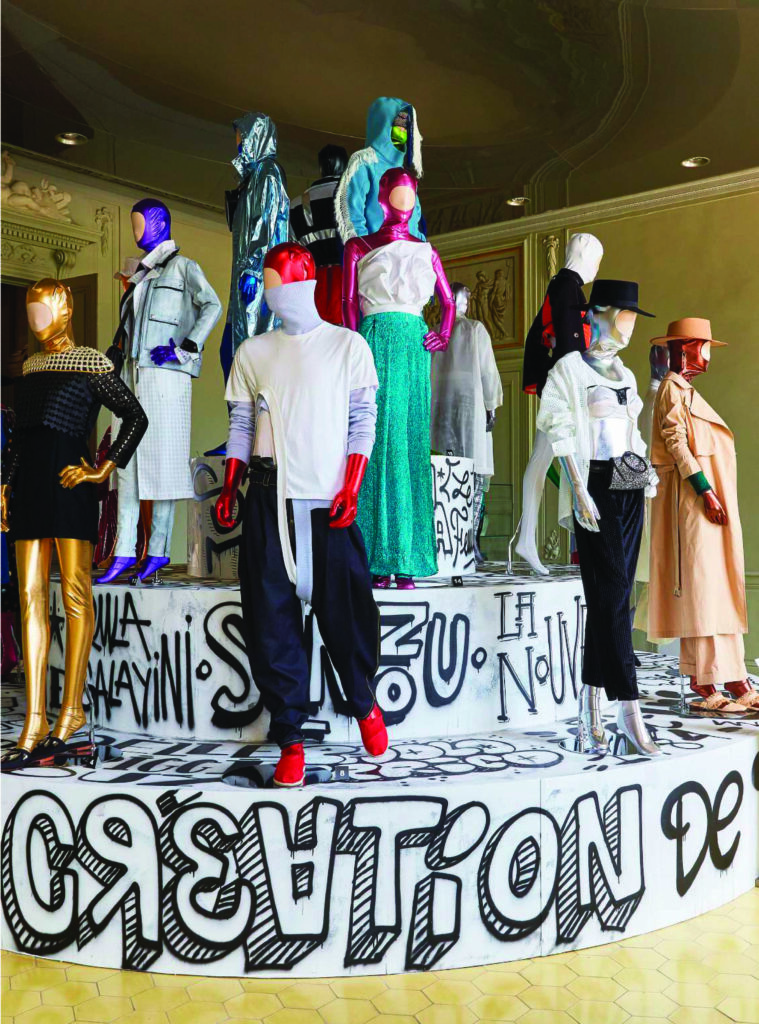
A Strategy for Fashion
This strategy could be summed up by the phrase “opening from the top for the bottom.” The bottom of the social pyramid—that is, those who build it and keep it alive. Indeed, it was never Maryline’s intention to yield to elitism without using the resulting notoriety to construct fashion education for all, thereby breaking the isolation of creators in their first steps. A cycle (let us remember the Cycle of the Seasons) was set in motion. For 20 years, the Fashion Encounters had no other purpose than to establish fashion training programs within both public and private education.
The 2010/2011 academic year saw the creation of a complete program—Bachelor’s and Master’s degrees in fashion and textile management, both creative and administrative—within Aix-Marseille University, the largest university in France, presided over until 2019 by Yvon Berland, another member of the “crew.” A single recognized goal: to reach the pinnacle of expertise. Over time, academic ties and frameworks strengthened, networks were built with major brands (Gucci, Saint Laurent) to host young graduates: a “system” unique in France. This is today’s reality, as illustrated by the Chanel Cruise Show organized in Marseille in 2023.
But let us take a step back…
There can be no strategy without a high point. Without a decisive encounter.
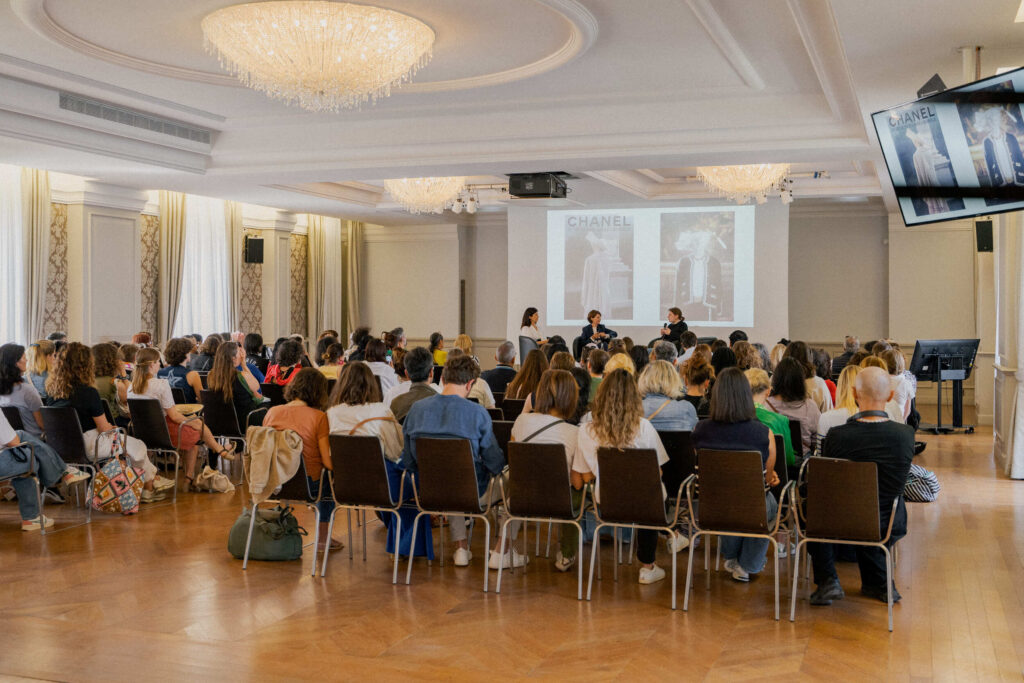
A quick reminder. 1989: a political coalition was effectively formed—Jean-Claude Gaudin for the Region, Lucien Weygand for the Department, and Robert Vigouroux for the City of Marseille—to “reconquer,” from both an economic and an image standpoint, the Canebière, the city’s main thoroughfare (which, as in Alibert’s song, aims to be world famous…). Among other projects, the idea of the Espace Mode Méditerranée took shape, at its heart the Fashion Museum, established in the disused building of the former Sigrand Covett company and inaugurated in 1993 with the exhibition Exotisms: Yves Saint Laurent.
President François Mitterrand and his Minister of Culture, Jack Lang, supported this ambition, seeing in it a high-caliber state project representative of their policy of cultural decentralization. The State contributed 40% of the budget, with the remaining 60% equally divided between the City, the Department, and the Region. Architect Michel Wilmotte won the contract for design and construction.
But strategy can also face reversals. While Marseille was celebrating its designation as European Capital of Culture 2013, the Mayor of Marseille, Jean-Claude Gaudin, decided with his Municipal Council to abandon the Canebière and transfer the Fashion Museum to Château Borély, requisitioned to become the Museum of Decorative Arts, Faience, and Fashion. This may seem paradoxical, if only considering the notoriety of the mythic site left behind. The Fashion Museum gave way to a Tourist Office…
This inevitably raises questions about the future—and political fluctuations.
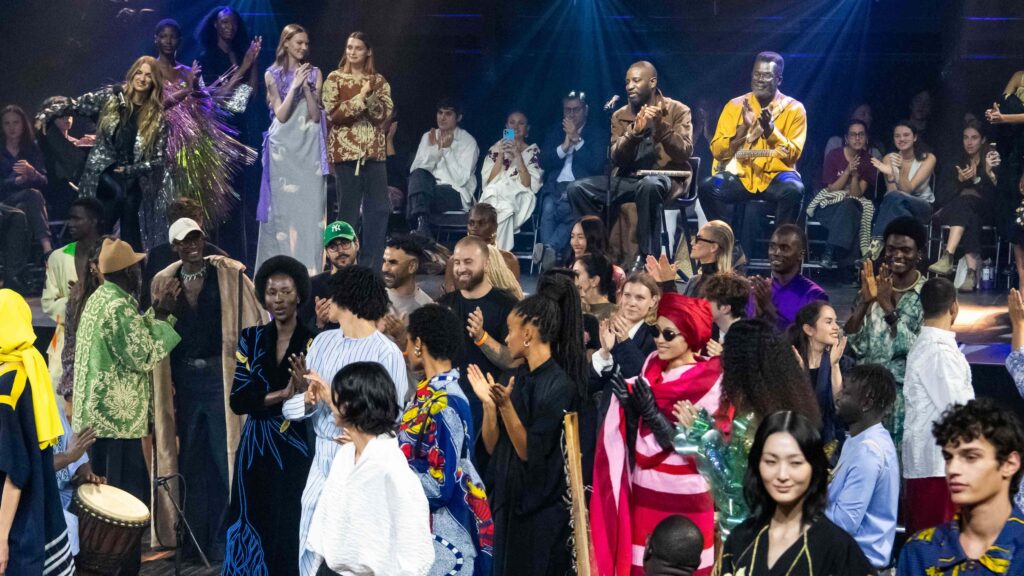
The Future of Mediterranean Fashion
Driven by Maryline, the specificity of Marseille—Euro-Mediterranean and African Metropolis—asserts more than ever its legitimacy to speak, to act, to innovate. Paris remains Paris, but Marseille becomes Marseille Plus. Twenty-two countries, including 17 from the southern shore of the Mediterranean, form a unique network of fashion creators, an international coverage whose foundations remain in their countries of origin—even when these, shaken by wars or health crises, struggle to stand. Every two years, a system of grants sustains the link and outlines a common house, a family, sometimes even a substitute emotional home.
Consolidated Recognition
Recognition for all this work has come from different horizons.
From President Emmanuel Macron, first of all, at the Mediterranean Summit in 2019, which brought together five European and five African countries, validating the concept of the “Union of the Two Shores” as an acknowledged label of coexistence and decentralization on an intercontinental level.
From UNESCO next, following the work of Audrey Azoulay, re-elected Director-General on November 9, 2021, who in 2022/2023 included Maison Mode Méditerranée—by then (in 2019) transformed into the Maison Mode Méditerranée Endowment Fund (FDDMMM)—as an expert partner in the first study and restitution on fashion professions in Africa.
Finally, from the Francophonie Summit in 2024, in which the FDDMMM took part and which crowned five award-winning brands from Morocco, Egypt, Lebanon, Tunisia, and Senegal.
We could not close this brief chapter dedicated to recognition of Maryline’s accomplishments without mentioning the distinctions that have honored her career: the Palmes Académiques, the title of Chevalier in the National Order of Merit, and Chevalier in the National Order of the Legion of Honor.
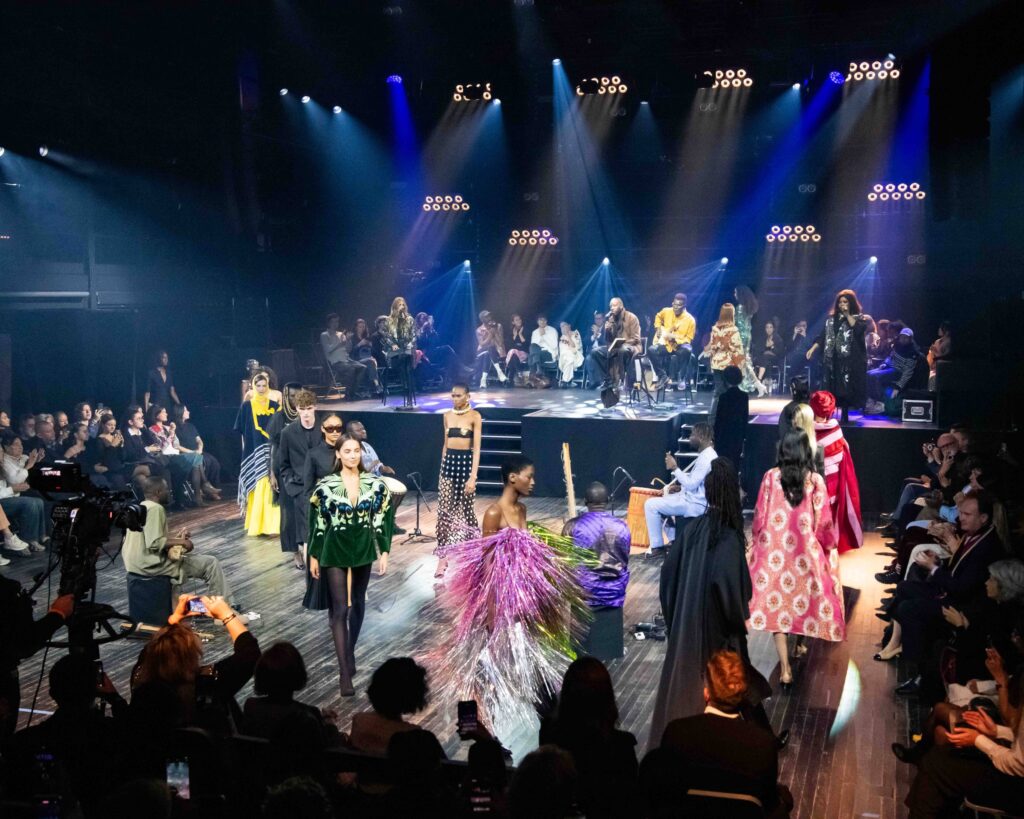
An Open Door to the Future
More than ever, what is now the FDDMMM is setting its course within an ever-expanding horizon. Marseille remains a Door that is always wide open…
In May 2023, Maryline handed over the reins (though without leaving her place on the Board of Directors).
Since that date, the current governance is as follows:
Jina Luciani, American–Franco-Lebanese, founder of the eco-responsible brand Occidente, a committed and altruistic woman in her fifties, cultivating languages (English, French, literary Arabic…) as much as volunteer opportunities.
Sakina M’Sa, Franco-Comorian, vice-president and recipient of the first training grant awarded by MMM in 1992, the only fashion structure in France to have been recognized with the “Union of the Two Shores” label at the Mediterranean Summit (see above).
Everything is in place. For the many years to come, one can only wish a safe journey to the “new crew.”
Michel Bourgeois
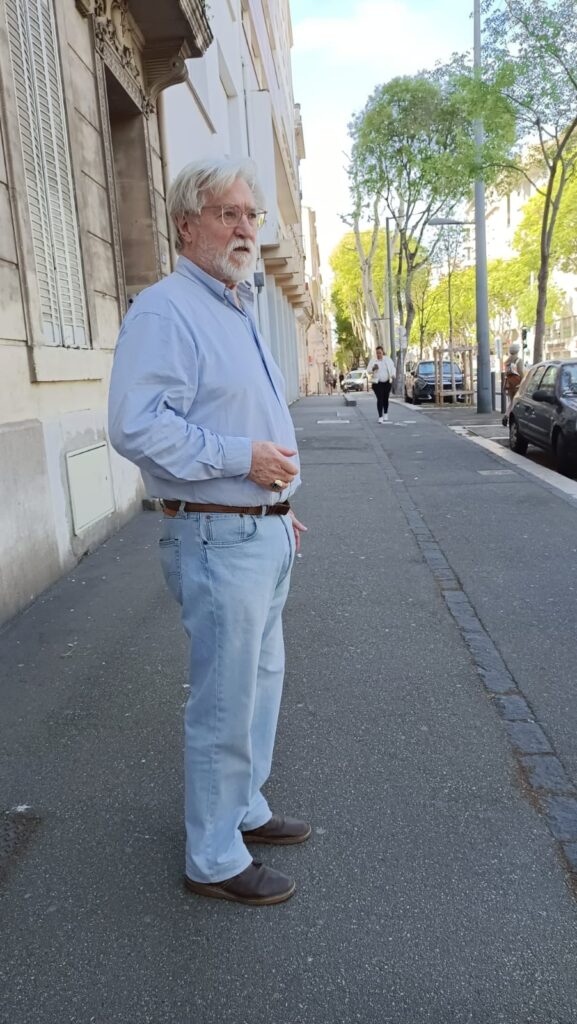 Age 73
Age 73
Retired commercial executive from SNCF.
A lover of travel and the arts (literature, painting, music…).
He has participated in many humanitarian services and associations (Restos du Cœur, Petits Frères des Pauvres, Médecins du Monde, Samu Social, ATD Quart Monde, Confédération des CIQ…), political organizations (LDH, LICRA, Socialist Party…), and humanist circles (Grand Orient de France)…
But his greatest achievements remain—together with his wife, Marie Thé—their two daughters and, indirectly, their two grandsons.
Key Actions of the Maison Mode Méditerranée Endowment Fund (MMM)
Support for Mediterranean and African Designers
The MMM Endowment Fund supports designers and researchers from regions distant from traditional fashion centers, such as Morocco, Tunisia, Egypt, Lebanon, and Senegal. Its mission is to promote cultural diversity and gender equality.
Open my Med Festival
From 2016 to 2019, MMM organized the Open my Med festival, combining fashion shows and exhibitions in Marseille museums such as the Fashion Museum and the MUCEM. This festival welcomed renowned designers such as Simon Porte Jacquemus and Christelle Kocher.
International Exhibitions and Collaborations
MMM has organized 45 exhibitions in partnership with cultural institutions and museums. The Fund has also collaborated with UNESCO to support the fashion industry in Africa.
Scholarship Programs
The MMM Endowment Fund offers scholarships to support designers and researchers in the Mediterranean and Francophone Africa, funding projects centered on fashion, heritage, and scientific research.
Fashion Collections
MMM has built clothing collections for the Fashion Museum and for its own association, thus contributing to the preservation of fashion heritage.
Cultural and Academic Events
The Fund organizes study trips, master classes, and collaborations with resource centers, fostering the transmission of know-how and innovation.
Commitment to Responsible Fashion
MMM promotes a vision of ethical, artisanal, and innovative fashion. The Fund encourages knowledge exchange to help the sector evolve toward greater sustainability.
These initiatives demonstrate the MMM Endowment Fund’s commitment to an inclusive and sustainable fashion, while contributing to the recognition of talents in Mediterranean and African countries.
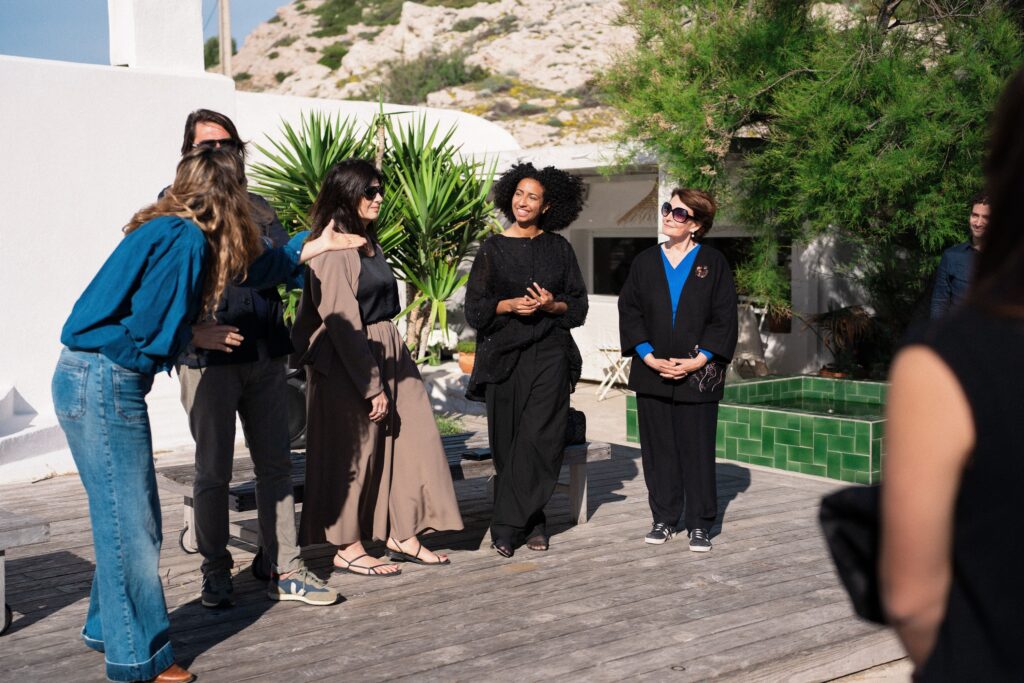
Presentation of the New Team Alongside Maryline Bellieud-Vigouroux
Jina Luciani: President Committed to Sustainable Fashion
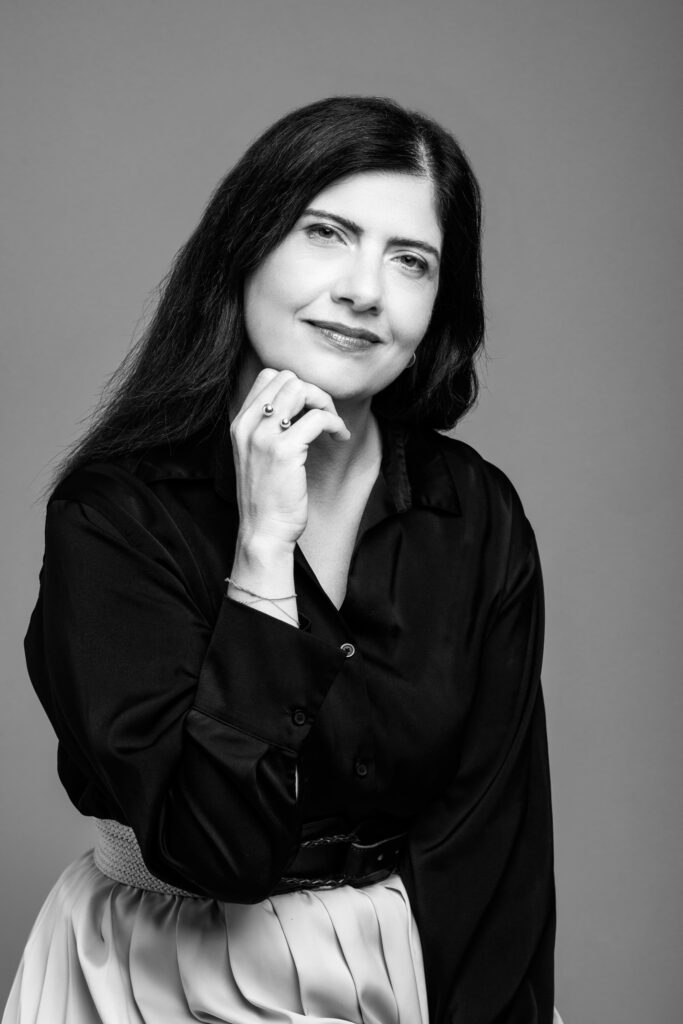 Jina Luciani is a prominent figure in Mediterranean and international fashion, recognized for her dedication to ethical and sustainable fashion. Born in Beirut and raised in the South of France, she studied fashion design at the Fashion Institute of Technology in New York, then specialized in lingerie at ESMOD Paris, graduating with honors. Her career began as Vice President of Design at Viamode NY, where she collaborated with prestigious brands such as Barneys New York, before founding her own label, French Nomad.
Jina Luciani is a prominent figure in Mediterranean and international fashion, recognized for her dedication to ethical and sustainable fashion. Born in Beirut and raised in the South of France, she studied fashion design at the Fashion Institute of Technology in New York, then specialized in lingerie at ESMOD Paris, graduating with honors. Her career began as Vice President of Design at Viamode NY, where she collaborated with prestigious brands such as Barneys New York, before founding her own label, French Nomad.
In 2006, upon returning to France, she launched Occidente, an eco-responsible fashion label inspired by the Mediterranean lifestyle, blending luxury and well-being. The brand is known for its lingerie, loungewear, yogawear, and beachwear collections and has been warmly received by international press outlets such as Le Monde, ELLE, and Women’s Wear Daily. It has also been a multiple recipient of the “The Selection” prize at the Salon International de la Lingerie in Paris.
In 2016, Luciani was awarded the OpenMyMed prize by Maison Mode Méditerranée for her work with Occidente, and in 2019, she joined the Board of Directors of the Maison Mode Méditerranée Endowment Fund (FDDMMM), becoming its president in 2024. Her career reflects a vision of fashion committed to cultural diversity and inclusion, with a strong emphasis on sustainable development. She also serves as a Master Artisan of Art and a member of Cosmetic Executive Women France, and she mentors young designers at the École de Condé in Nice and at Aix-Marseille University, where she promotes a fashion respectful of the environment and Mediterranean culture.
Sakina M’Sa: Vice-President and Pioneer of Ethical Fashion
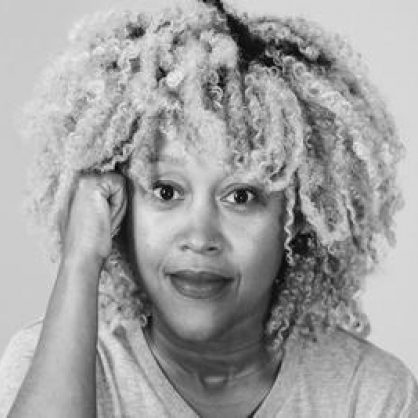 Sakina M’Sa is a Franco-Comorian fashion designer with a pioneering and committed career. She is Vice-President of the Maison Mode Méditerranée Endowment Fund (FDDMMM) and has a longstanding relationship with the institution, having been the first recipient of its training grant in 1992. Recognized for her socially conscious and eco-responsible approach to fashion, she is also the founder of her eponymous label, which emphasizes sustainability and inclusion.
Sakina M’Sa is a Franco-Comorian fashion designer with a pioneering and committed career. She is Vice-President of the Maison Mode Méditerranée Endowment Fund (FDDMMM) and has a longstanding relationship with the institution, having been the first recipient of its training grant in 1992. Recognized for her socially conscious and eco-responsible approach to fashion, she is also the founder of her eponymous label, which emphasizes sustainability and inclusion.
Her structure is the only one in France to have received the “Union of the Two Shores” label at the Mediterranean Summit, a distinction highlighting her commitment to fostering closer ties between the northern and southern shores of the Mediterranean. As Vice-President of FDDMMM, Sakina M’Sa actively supports initiatives that promote inclusive and supportive fashion, encourage young talent, and strengthen cultural cooperation across the Mediterranean. Her vision of fashion, rooted in authenticity and social impact, makes her an influential figure in the sector, particularly in the field of ethical and innovative fashion.
